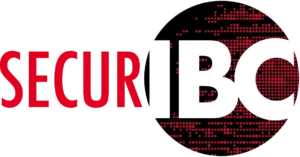What’s the big deal with email security within your business or organization? Without a clear understanding of just how many risks and vulnerabilities employees can open your business up to without proper awareness and safety protocols in place to protect your data and systems – can leave you dangerously exposed and at risk. Thankfully, the IT Managed Service experts at SecurIBC in Brantford are here to share the tips and expertise you need to securely succeed with your email operations and beyond.
- Strong Passwords: Encourage the company IT Admins to create strong, unique passwords for all email accounts. These passwords should be a combination of letters (both uppercase and lowercase), numbers, and special characters, with the password length ideally being at least 12 characters long.
- Two-Factor Authentication (2FA): It is recommended to implement 2FA for all email accounts, as this adds an extra layer of security by requiring users to provide a second form of verification, such as a temporary code sent to their mobile device to allow them access to email.
- Phishing Awareness Training: Conduct regular training sessions to educate employees about phishing attacks and how to identify suspicious emails. Employees should be trained to avoid clicking on links or downloading attachments from unknown or unverified sources to minimize risks.
- Encryption: Ensure that email communication within the company is encrypted, as this prevents unauthorized access to sensitive information during transmission.
- Spam and Malware Filters: Utilize robust spam filters and malware detection systems to minimize the risk of malicious emails reaching employees’ inboxes. These filters should be regularly updated by your IT Management team to keep up with new threats.
- Regular Software Updates: Keep email software and clients up to date with the latest security patches. Outdated software may have vulnerabilities that could be exploited by attackers, leaving your business or organization open to risks.
- Email Filtering: Implement email filtering systems to block or quarantine suspicious or malicious emails. This helps in reducing the chances of employees accidentally interacting with harmful content.
- Employee Training: Provide comprehensive training to employees regarding email security best practices, such as avoiding sharing sensitive information through email, verifying email senders’ identities, and understanding common email scams.
- Data Loss Prevention (DLP): Implement DLP measures to prevent unauthorized sharing or leakage of sensitive information through email. This can include monitoring and blocking certain types of attachments or confidential data from being sent via email.
- Access Controls: Assign appropriate access rights to email accounts based on job roles and responsibilities. Not all employees need access to every email account and granting limited access reduces the risk of unauthorized access or misuse.
Follow these tips for online email security success…or better yet, call us today for your free initial consultation to see how easily SecurIBC can help your business grow and succeed!





